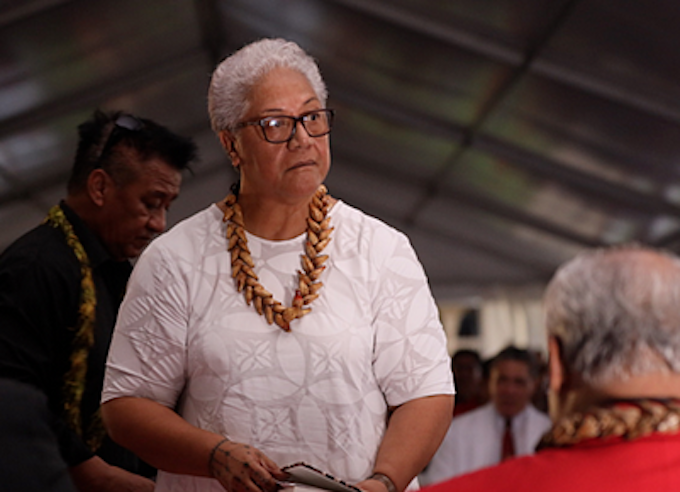What transpired over the last 36 hours in Samoa was largely unprecedented and unexpected.
Forty-five days ago, Former Deputy Prime Minister, Fiame Naomi Mataafa, was elected in a tightly contested finish in the Samoan national elections.
Her party, Faatuatua ile Atua Samoa ua Tasi (FAST) and the Human Rights Protection Party (HRPP) headed by the now former PM, Tuilaepa Sailele Malielegaoi had each secured 25 seats. The tie breaker came from an independent candidate who sided with Fiame Naomi Mataafa.
But the political drama was just about to begin.
The Office of Electoral Commission allowed for the invocation of a provision of law that calls for a 10 percent representation of women in parliament. HRPP used the provision to boost its numbers with the inclusion of a woman candidate defeated in the elections.
Against that new development, the Head of State, Tuimaleali’ifano Vaaletoa Sualauvi II, revoked the April 9th General election results and announced fresh elections on the 21st of May.
The matter was then taken to court.
FAST party lawyers, questioned the validity of the head of state’s declaration. The Supreme court ruled in their favour finding the decisions by both the Electoral Commission and the Head of State unlawful and unconstitutional.
Former Editor of the Post Courier, Alexander Rheeney, who is one of three editors of the Samoan Observer newspaper, said he wasn’t expecting an escalation of this level.
“Samoan people are very respectful. It is ingrained in their culture. I didn’t expect that they would break protocols like that.” Rheeney said. “But earlier, you could already tell that the incumbent PM was not going to leave that easily because he was already questioning the supreme court’s decision.”
Samoan law allows a 45 day period within which a new government has to be sworn in. On the final day on Monday the 24th, the crisis had still not been resolved. In the morning, Samoa’s Chief Justice, Satiu Simativa Perese, and other dignitaries in full ceremonial dress found that the courts were locked.
The Parliament doors were also locked preventing the Prime Minister elect from being sworn in.
For Papua New Guinean observers, the vibe almost felt like a replay of the conditional crisis of 2011-2012 when both Peter O’Neill and Sir Michael Somare both claimed legitimacy as Prime Minister.
As Papua New Guineans watched a live parliament inquiry into gender based violence, in Samoa, Fiame Naomi Mataafa was sworn in under a tent, by a people defiantly defending their democracy.
“It’s a huge thing for the Pacific,” Rheeney says. “It sets the tone for other Pacific countries especially Papua New Guinea.”


